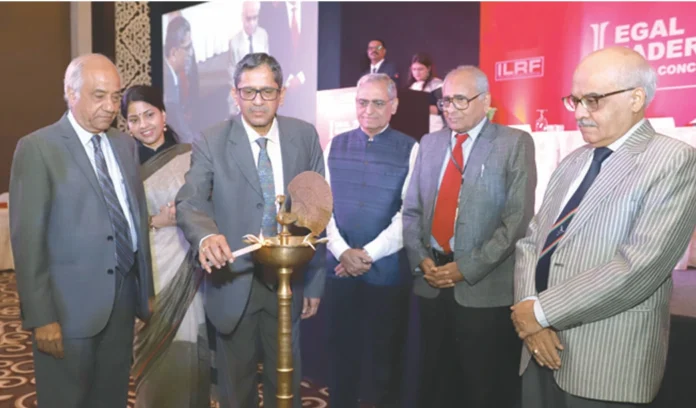
By India Legal Bureau
Conclaves and seminars are nothing new in India. But a legal one, that too on a subject as niche as the Insolvency and Bankruptcy Code (IBC), is an altogether new idea. But then, India Legal as the only politico-legal magazine in India and ENC as a media group, have always endeavoured and succeeded to a great extent, to create awareness about various legal issues that not only affect the common man but the country at large.
IBC is an ambitious piece of economic reform in India and provides for a time-bound insolvency resolution process. The law, enacted in 2016, has been adopted by both creditors and debtors. From real estate developers to financial institutions to home buyers, IBC concerns everyone, thus impacting the Indian economy and citizen welfare.
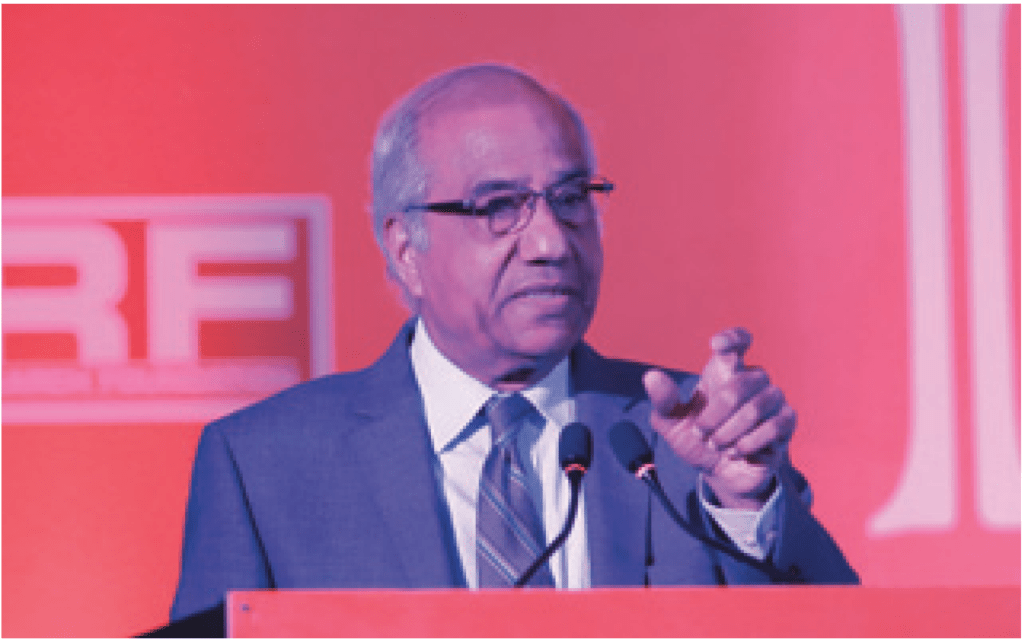
It is against this backdrop that the first-of-its-kind Legal Leadership Conclave becomes important. Held at The St. Regis Mumbai on April 27, it brought the best of legal minds together to deliberate on issues affecting IBC. Such was the response that the Astor Ballroom of the hotel—where the event was held—was chock-a-block with lawyers, technocrats, industry experts, builders, law students and others who were either affected by IBC or wanted to educate themselves about this unique law.
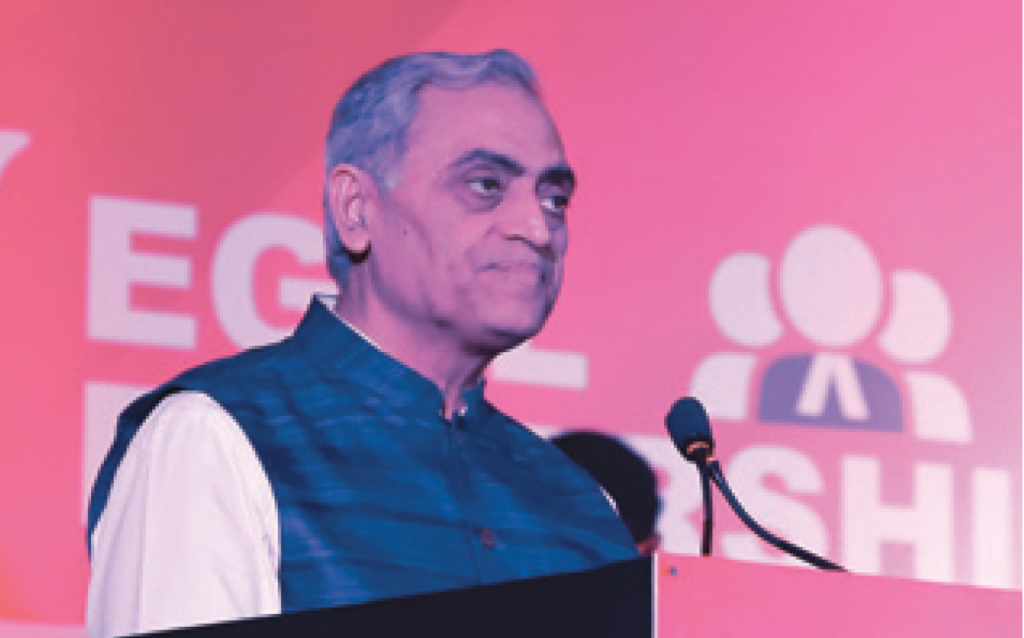
The Conclave had two technical sessions dealing with subjects, such as “Opportunities and challenges for IBC” and “Impact of IBC on business establishments and the real estate sector”. Both the sessions saw judges from the High Courts, senior advocates and members of the National Company Law Tribunals and corporate professionals sharing their views with the audience.
A majority of SCBA executive committee members were also present at the event. They included Vikrant Yadav, secretary, SCBA; Vikas Bansal, treasurer, SCBA, and Bhim Singh and Jana Kalyan Das, both senior executive members.
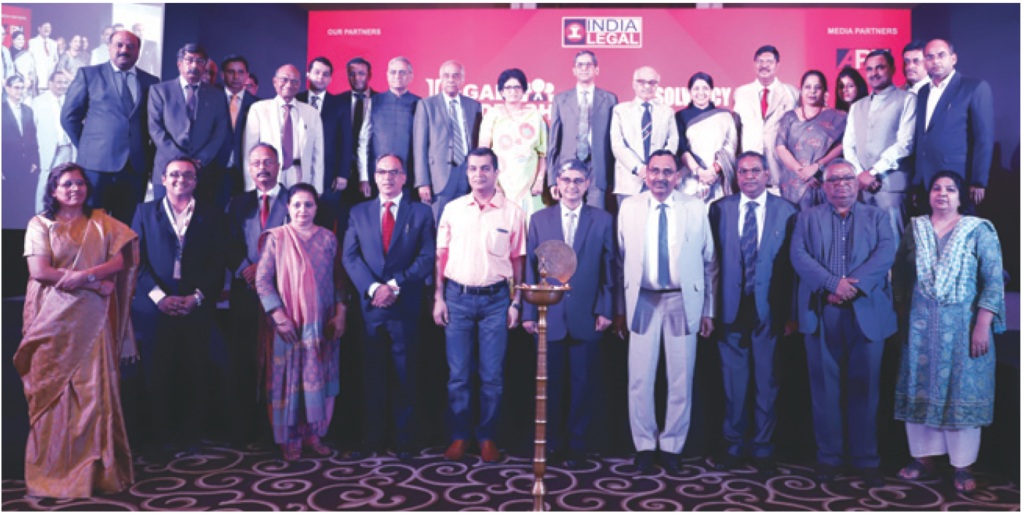
The Conclave was partnered by India Legal Research Foundation (ILRF), a non-profit organisation committed to bringing justice to those who deserve it but cannot afford it, APN and Nepal 1 and presented by ENC.
The Conclave started with the lighting of the lamp by Justice NV Ramana of the Supreme Court. Others at the ceremony were Justice BN Srikrishna, former judge of the Supreme Court; Justice Pradeep Nandrajog, chief justice of the Bombay High Court; Rajshri Rai, editor-in-chief APN and ENC group; former law secretary, PK Malhotra and Inderjit Badhwar, editor-in-chief, India Legal.
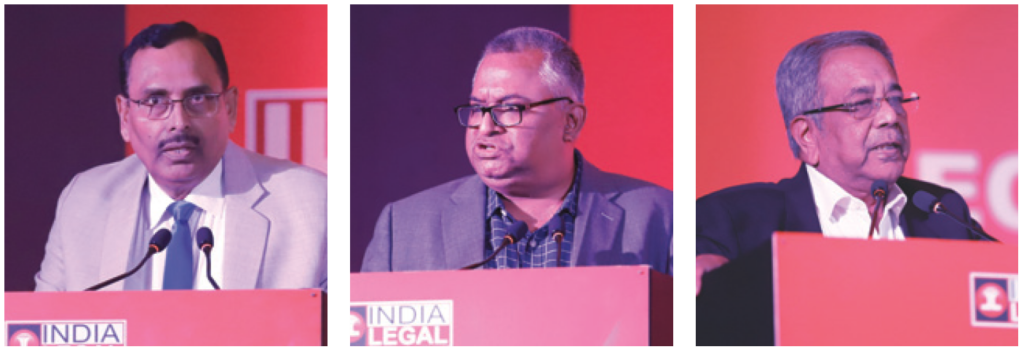
In his welcome address, PK Malhotra said: “IBC is a commendable initiative. It has helped India leapfrog into the list of countries known for the ease of doing business. Such is the impact of IBC today that there is hardly a day where developments related to it do not get reported in the press.”
Justice Ramana too acknowledged the importance of such a Conclave on IBC. In his inaugural address, he said: “This conclave is a phenomenal opportunity for all of us to discuss, debate and deliberate on various issues concerning IBC, and to contribute towards the discourse which will eventually charter the way for this new legislation.” The judge said that NPAs have threatened to cripple the banking system and throttled economic growth and “to solve this crisis, the IBC was enacted as a comprehensive legislation reflecting the best practises around the globe, to provide for a time-bound insolvency resolution mechanism”.

He further said: “As a company judge for several years in the Andhra Pradesh High Court and having heard company matters in the Supreme Court, I have been able to witness several challenges faced by various stakeholders in cases of companies in distress. After the IBC came into effect, I was involved in recruiting members for NCLT, which now hears cases under IBC.”
He said there were several key challenges to the IBC such as its impact on other sections of society, efficiency of the adjudicatory process, need for a time-bound process for resolution of disputes, role of operational creditors, training of resolution professionals, allowing bidders to enhance their bids, high-value bids submitted after the deadline and differential framework for micro, small and medium enterprises.

He said the government must constitute enough NCLT and NCLAT benches and appoint members and staff to these tribunals in a timely manner, provide proper infrastructure and offer security of tenure to its members. He also asked the Bar to educate lawyers and the bench about these laws.
Justice BN Srikrishna was lavish in his praise of the IBC. “IBC is considered a landmark reform in the area of ease of doing business. It helps in the resolution of insolvency issues and helps refloat a company which is in financial distress. IBC has reduced the time taken to wind up a company. It has gone a long way in improving India’s ranking in the ease of doing business. IBC will accelerate India’s economy, promote entrepreneurship. People believe it is a game changer and will usher in ‘achhe din’.”
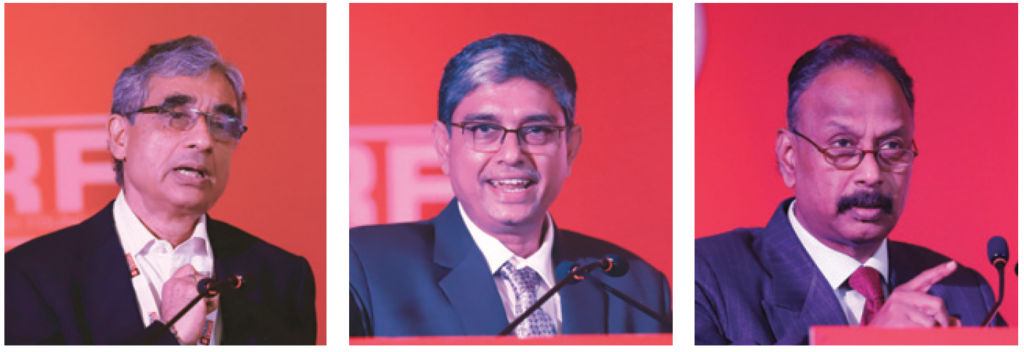
Panellists in the first technical session were Mukulita Vijayawargiya, member (Insolvency and Bankruptcy Board of India); VP Singh (NCLT member); Mohan Bhaskar Pantulu (NCLT member); TK Viswanathan, former secretary general, Lok Sabha; and Som Sekhar Sundaresan, advocate. Justice BR Gavai of the Bombay High Court chaired the panel.
Those on the panel of the second session were Ravi Kumar Duraisamy (member, NCLT); Justice J Bharati Dangre of the Bombay High Court; Justice V Nallasenapathy (member, NCLT); OP Bhatt, director, ONGC, and ex-chairman, Indian Banking Association; Jana Kalyan Das; and former SCBA president PH Parekh. Justice Bharati Dangre was the chairperson of the session.

Justice BR Gavai of Bombay High Court said that “IBC has the potential to bring solace to creditors. It has considerably improved the way we do business and India today is admired the world over for this. The Leadership Conclave will go a long way in improving the way IBC functions.”
Justice Dangre said: “Three years have passed since IBC was introduced in India. The scenario looks happy and the law has yielded results. However, some creases still need to be ironed out. It is good to see national law universities’ students at this gathering. After all, they are the future judges of India. The subject of this session, real estate, is important. Many developments have taken place in this sector with the advent of RERA. It was in 2018 that the IBC brought in the homebuyer as a ‘financial creditor’ which is praiseworthy.”
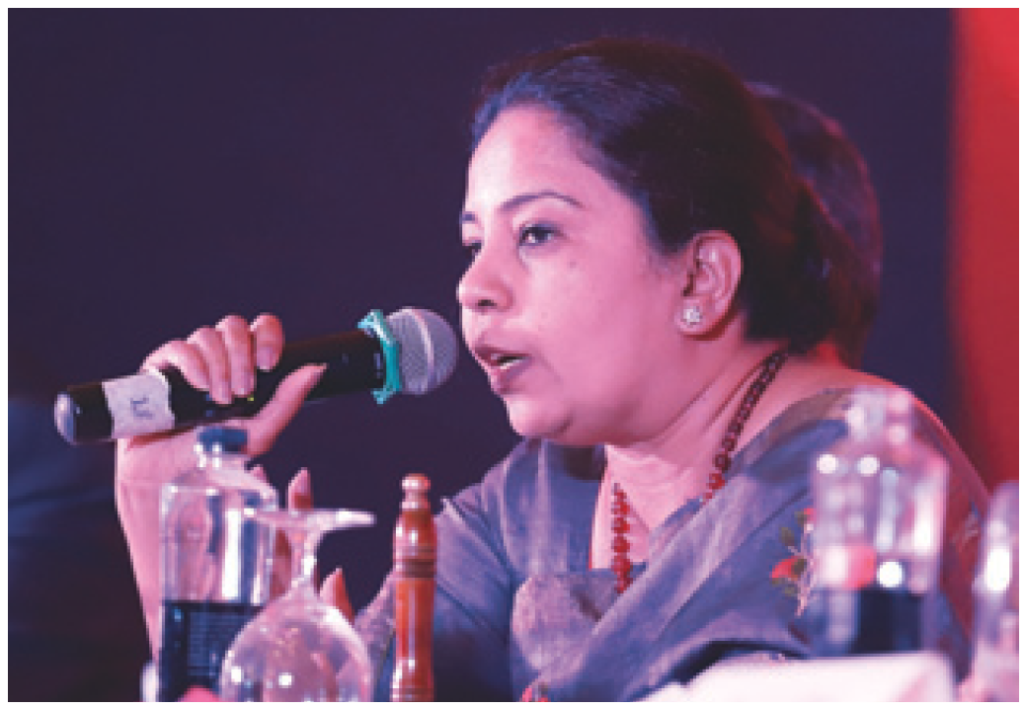
The Valedictory Session had Justice Ramana, Justice Nandrajog and senior advocate Janak Dwarka Das addressing the audience. Das said that the IBC had brought back money into the banking system. It is a game changer and its principal objective is to revive and maximise the value of creditors, he said. He dealt at length with the legal provisions of Section 29A and Section 12A and pointed out the contradictions between the two.
Justice Nandrajog said that IBC was created to deal with insolvency and bankruptcy. He said one of the issues affecting IBC was the role of insolvency professionals who generally lack the ability to comprehend hardcore business issues as they do not have hands-on business experience.

He also said that the existing waiting period is a double-edged sword and the resolution process can extend beyond a year as seen in several western countries. He said that the issues which ultimately make a company bankrupt should be sorted out when they germinate.
Justice Ramana concluded the Valedictory Session, and this was followed by a vote of thanks by Inderjit Badhwar.




